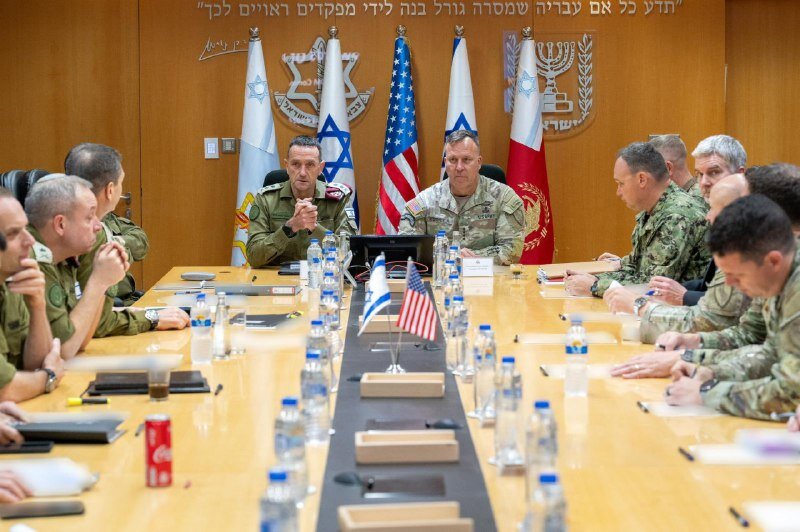The Israeli burden weighs on American shoulders

TEHRAN- While the American public opinion clearly dislikes wars, certain warmongers in Washington DC are pushing for robust American support for Israeli adventurism in the West Asia region.
America stands firm with Israel but at the same time it wants to avoid head-on clash with Iran.
In the wake of the Israeli attack on the Iranian embassy in Damascus and the subsequent loss of Iranian military advisors, Tehran swiftly pledged a retaliatory response against Tel Aviv. Concurrently, hawkish American senators have intensified their pressure on the Biden administration, urging for a more resolute stance and unwavering support for Israel.
Senator Tom Cotton, on April 11, took to Twitter to declare, "Israel is under threat of imminent attack by Iran. President Biden needs to warn the ayatollahs immediately that the United States will back Israel to the hilt and the joint American-Israeli retaliation for any attack will be swift and devastating." Later that day, he sharply criticized the Biden administration's policy, asserting that it had resulted in "three years of weakness on the world stage."
Cotton's stance sparked diverse reactions on Twitter. One questioned, "Why should America back Israel? What has Israel ever done for the USA?" Another voiced, "This is a matter between Israel and Iran. Leave us out of it." Yet another user challenged Cotton's stance on Tel Aviv, asking, "Could you care to explain why it's in America's interest to send our kids to die for a country the size of New Jersey, thousands of miles away, with zero strategic benefit for us?"
In contrast to Cotton, Senator Marco Rubio aimed to mount a psychological operation against Iran's response to Israel. He suggested that Tehran's retaliation would inevitably lead to "armed conflict." Rubio asserted, "Iran wants to launch a large scale attack from their own territory against Israel… Israel will respond instantly with an even more severe counterattack inside of Iran." He warned of the potential for rapid escalation and the difficulty of containing a new armed conflict.
Similarly, Senator Lindsey Graham affirmed his unequivocal support for Israel, pledging to provide whatever weapons and resources they require. However, his warmongering rhetoric on Twitter was met with intriguing comments. One user expressed concern, "I hope Americans don't want to die for Israel," while another accused Graham of “loving war.”
These statements underscore a complex dynamic in U.S. foreign policy, where voices advocating for unwavering support of Israel clash with those questioning the rationale and consequences of such commitments.
As tensions escalate in West Asia, it is imperative for policymakers to weigh the potential costs and benefits of their actions carefully, considering both the interests and implications for regional stability.
Feeling the pressure from hawkish U.S. senators, President Joe Biden, in his address to Tehran on Friday, adopted an imperative rhetoric, expressing his anticipation of an Iranian attack on Israel "sooner, rather than later," and cautioned Tehran against such action.
Biden's message was succinct: "Don't," as he emphasized Washington's unwavering commitment to defending Israel.
"We are dedicated to Israel's defense. We will support and assist Israel in its defense, and Iran will not succeed," he affirmed.
Simultaneously, U.S. Central Command (CENTCOM) Commander Gen. Michael "Erik" Kurilla arrived in Israel on April 11. Israel's military chief, Herzi Halevi, stated on Friday that the Israeli army, in close coordination with CENTCOM, was prepared for a potential Iranian retaliatory strike.
Military photographs depicted General Michael Erik Kurilla participating in a situational assessment meeting in Tel Aviv alongside Halevi and other senior Israel Defense Forces (IDF) commanders on Friday.
The stances of American figures in support of Tel Aviv were widely criticized by people across the United States, questioning the benefits of such support for Washington. Many criticized the White House, asking why U.S. interests were being sacrificed to support Tel Aviv. They argued that Tel Aviv should be held accountable for its actions and questioned why taxpayers should foot the bill for Israel's warmongering.
Decoding Washington's strategy
American figures' stance on supporting Tel Aviv appears to be part of a psychological operation aimed at dissuading Tehran from responding to Israel's recent actions. However, the retaliatory missile strike by the Islamic Revolution Guards Corps (IRGC) targeting the U.S.-run Ain al-Asad base in Iraq demonstrated Tehran's resolve in responding to any acts of terrorism by adversaries.
On January 8, 2020, the IRGC launched a wave of missile attacks on the U.S.-run Ain al-Asad base in Iraq's western province of Anbar in retaliation for the assassination of General Soleimani, characterizing it as a "first slap." The Pentagon reported that over 100 American forces suffered "traumatic brain injuries" during the missile strike.
According to AXIOS news website, Iran has warned U.S. to stay out of fight with Israel or face attack on troops. This American news website has stated that Iran sent a message to the Biden administration through several Arab countries earlier this week: if the U.S. gets involved in the fighting between Israel and Iran, U.S. forces in the region will be attacked.
Western media outlets, amidst speculation over Iran's potential response to Israel, have also engaged in their own psychological operations by highlighting the economic aspects of Iran's market, suggesting that Tehran's retaliation could lead to increased inflation and economic hardships for the Iranian people.
This action aims to sow discord between the Iranian government and its populace, suggesting that the nation could face heightened economic challenges if Tehran chooses to retaliate against Tel Aviv's actions.
The evident fear among American figures of Iran's potential response has driven them to employ various tactics to shield Israel from Iran's legitimate retaliatory response.
In summary, while the U.S. is poised to fully support Israel, particularly by providing intelligence about Iran's potential attacks through U.S. military bases in West Asia, it is unlikely to directly engage in military action against Iran due to the anticipated costs and consequences for the White House.
By Alireza Akbari
Leave a Comment